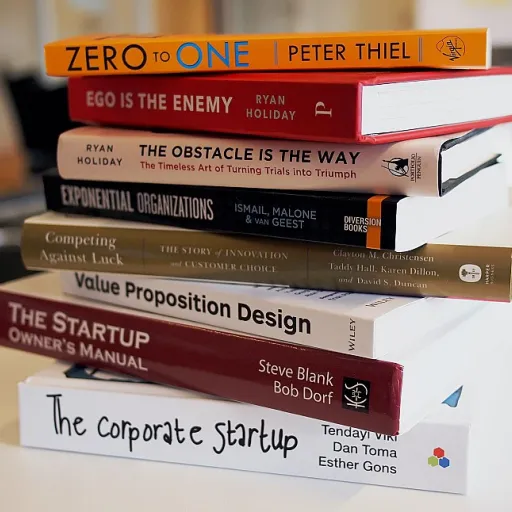
The Role of Interviews in DO School Admissions
The Importance of Interviews in DO School Admissions
In the competitive landscape of medical school admissions, particularly for Doctor of Osteopathic Medicine (DO) programs, the interview plays a pivotal role. It's not just a formality; it's a critical component of the admissions process that can significantly influence acceptance. Most schools view the interview as an opportunity to assess applicants beyond their academic credentials. This is where the admissions committee evaluates interpersonal skills, motivation, and the applicant's fit for the school's culture.
Interviews are a chance for students to demonstrate their passion for medicine and their understanding of osteopathic principles. They offer a platform to answer questions that delve into personal experiences, ethical dilemmas, and scenarios that test problem-solving abilities. For many applicants, the interview day is a culmination of years of preparation, and performing well can make a substantial difference in the outcome of their application.
Given the weight interviews carry, it's crucial for applicants to approach them with the right mindset and preparation. This is where understanding the nuances of the admission cycle and the expectations of the admissions committees becomes essential. Each year, schools will refine their interview processes to better select candidates who align with their educational mission and values.
While most schools have a structured interview process, the questions asked can vary widely. Some top schools may focus on traditional questions, while others might incorporate more innovative approaches to gauge an applicant's potential. It's a good idea for students to familiarize themselves with the types of questions they might face and to practice articulating their thoughts clearly and confidently.
Ultimately, the interview is not just about answering questions; it's about making a lasting impression. Applicants should aim to convey their unique qualities and how they can contribute to the medical school community. By doing so, they increase their chances of receiving that coveted acceptance letter after the interview.
Factors Influencing Acceptance After an Interview
Factors That Sway Admissions Decisions Post-Interview
After completing the rigorous application process, students may find themselves participating in a med school interview, hoping it will lead to their acceptance into a DO school. It's about presenting oneself well, but more than that, there are several factors that come into play when schools will deliberate over an applicant's fate.- Performance During Interviews: Naturally, how candidates present themselves during the interview medical will weigh heavily. Schools will look for articulate communication, empathetic understanding, and enthusiasm for the medical profession. Applicants who demonstrate these qualities can enhance their chances significantly.
- Letters of Recommendation: A well-crafted letter backing the candidate’s previous accomplishments or potential can be pivotal during med school admissions. Top schools particularly value endorsements from credible sources.
- Alignment with the School's Values: Schools often assess whether the candidate aligns with their mission and values. Applicants who convey a deep understanding of the school's ethos during the interview have a better chance of securing an acceptance letter.
- Post-Interview Considerations: Following the interview, many admissions committees appreciate a thoughtful thank-you note from candidates. This gesture shows professionalism and genuine interest in the school's program. However, remember the traffic rules for such correspondence: keep it concise and free of errors.
- Holistic Review Process: In most schools, admissions committees engage in a holistic review process, considering the entire application package, including extracurricular involvement and leadership roles, in addition to the interview performance. Schools want students who not only have academic acumen but who will contribute to the community in meaningful ways.
How Professional Mentoring Can Enhance Interview Success
Boosting Interview Preparedness Through Mentoring
Professional mentoring can significantly enhance interview success for applicants to DO schools. Engaging with a mentor who understands the medical school admissions process can provide aspiring students with unique insights into what admissions committees are looking for. Here are some ways mentoring can make a difference:- Interview Preparation: A mentor with experience in medical school admissions can equip students with strategies for answering tough interview questions. They provide valuable insights into what top schools prioritize during the interview.
- Improving Communication Skills: Mentors help students refine their communication skills, ensuring they can convey their strengths clearly and confidently during the interview day. This preparation is crucial, as how applicants present themselves can significantly affect the admissions committee's decision.
- Feedback and Reflection: A critical component of mentoring is offering feedback on performance. This includes conducting mock interviews and providing constructive criticism, enabling students to reflect and improve before the actual interview.
- Building Confidence: With consistent feedback and practice, students build the confidence they need to handle interviews at most schools well. This assurance can translate into a more poised and self-assured demeanor during the actual school interview.
- Guidance on the Admissions Process: Mentors can also give a broader perspective on the med school admission cycle, helping students understand timelines and the importance of sending thank you letters post-interview.
Common Mistakes to Avoid During DO School Interviews
Avoiding Common Pitfalls During Interviews
Understanding the dynamics of a DO school interview is crucial, as it can make or break your acceptance prospects. Although most schools are eager to gauge your potential beyond test scores, it's essential to sidestep the typical errors that many applicants unknowingly commit. Firstly, preparation is key. Applicants often underestimate the depth and breadth of questions that may be presented, expecting only standard queries. This can lead to a lack of context in responses and, consequently, a less impressive interview day. Be sure to research potential questions using resources like the admissions committee guidelines of your applied schools. Another cautionary point pertains to handling stress during the interview. Nervousness is natural, but allowing it to overwhelm you can derail your performance. Simple techniques such as controlled breathing or mentally recalling well-prepared points can maintain your composure. Moreover, it’s important to remember the power of authenticity. In an effort to impress, applicants sometimes fabricate or exaggerate experiences. However, seasoned admissions committees discover these discrepancies, which can severely harm your chances of acceptance. Post-interview, a common mistake is neglecting follow-up. Sending a sincere thank you letter to the interviewers can reinforce your interest in the school and leave a lasting positive impression. In summary, while the interview is a decisive stage in the admission cycle, strategically avoiding these pitfalls can significantly enhance your chance of acceptance to most schools. Trust in your preparation, embrace authenticity, and maintain professionalism throughout every step of the process.The Impact of Feedback and Reflection in the Interview Process
Reflecting on Your Interview Performance
After the interview day at a medical school, it’s crucial for applicants to take a step back and reflect on their performance. This reflection process is not just about identifying what went well, but also about understanding areas that need improvement. Most schools encourage this practice as it helps students prepare better for future interviews, whether they are for med school or other professional opportunities.
The Importance of Feedback
Feedback is an essential component of the interview process. Admissions committees often provide insights into your performance, which can be invaluable. If you don’t receive feedback directly from the schools, consider reaching out to mentors or peers who can offer constructive criticism. This feedback can help you understand how your responses to questions were perceived and what you might need to adjust in future interviews.
Learning from Each Interview
Each interview is a learning opportunity. Even if the outcome isn’t what you hoped for, there’s always something to take away. Reflect on the questions asked and how you answered them. Were there any questions that caught you off guard? Did you feel confident in your responses? Understanding these aspects can help you refine your approach for the next admission cycle.
Implementing Changes for Future Success
Once you’ve gathered feedback and reflected on your interview, it’s time to implement changes. This might mean practicing more with mock interviews, focusing on specific areas of your application, or even revisiting your pre-med coursework to ensure you’re well-prepared. The goal is to make each interview better than the last, increasing your chances of acceptance at top schools.
Remember, the journey to medical school is a marathon, not a sprint. By continuously improving and adapting, you’re setting yourself up for success in the competitive world of medical school admissions.
Real-Life Success Stories: Mentoring and DO School Acceptance
Success Stories: Mentoring's Role in DO School Acceptance
In the competitive landscape of medical school admissions, particularly for DO schools, the interview process can be a pivotal moment for applicants. Many students have found that professional mentoring significantly enhances their chances of acceptance. These real-life success stories highlight the transformative impact mentoring can have on the journey to medical school.
One applicant, after receiving a post-interview rejection letter from several top schools, decided to seek the guidance of a professional mentor. The mentor, who had extensive experience with admissions committees, provided insights into the applicant's interview performance. They identified areas for improvement, such as answering questions more succinctly and demonstrating a deeper understanding of osteopathic principles. With this tailored feedback, the applicant was able to refine their approach and successfully gain acceptance in the following admission cycle.
Another student, who had applied to multiple med schools, faced challenges in articulating their unique strengths during interviews. Through mentoring, they learned to effectively communicate their experiences and aspirations, aligning them with the values of the schools they were applying to. This strategic alignment proved to be a good idea, as it resonated well with the admissions committees, leading to multiple offers.
Mentoring also plays a crucial role in helping applicants navigate the nuances of the interview day itself. From understanding the traffic rules of the interview process to mastering the art of follow-up, mentors provide invaluable guidance. For instance, one pre-med student learned the importance of sending a thoughtful thank-you note after the interview, a gesture that left a lasting impression on the admissions committee.
These stories underscore the importance of professional mentoring in the DO school interview process. By avoiding common mistakes and leveraging the insights of experienced mentors, applicants can significantly enhance their chances of acceptance. As these success stories demonstrate, the right guidance can turn a pretty good interview into a standout performance, opening doors to a promising medical career.













